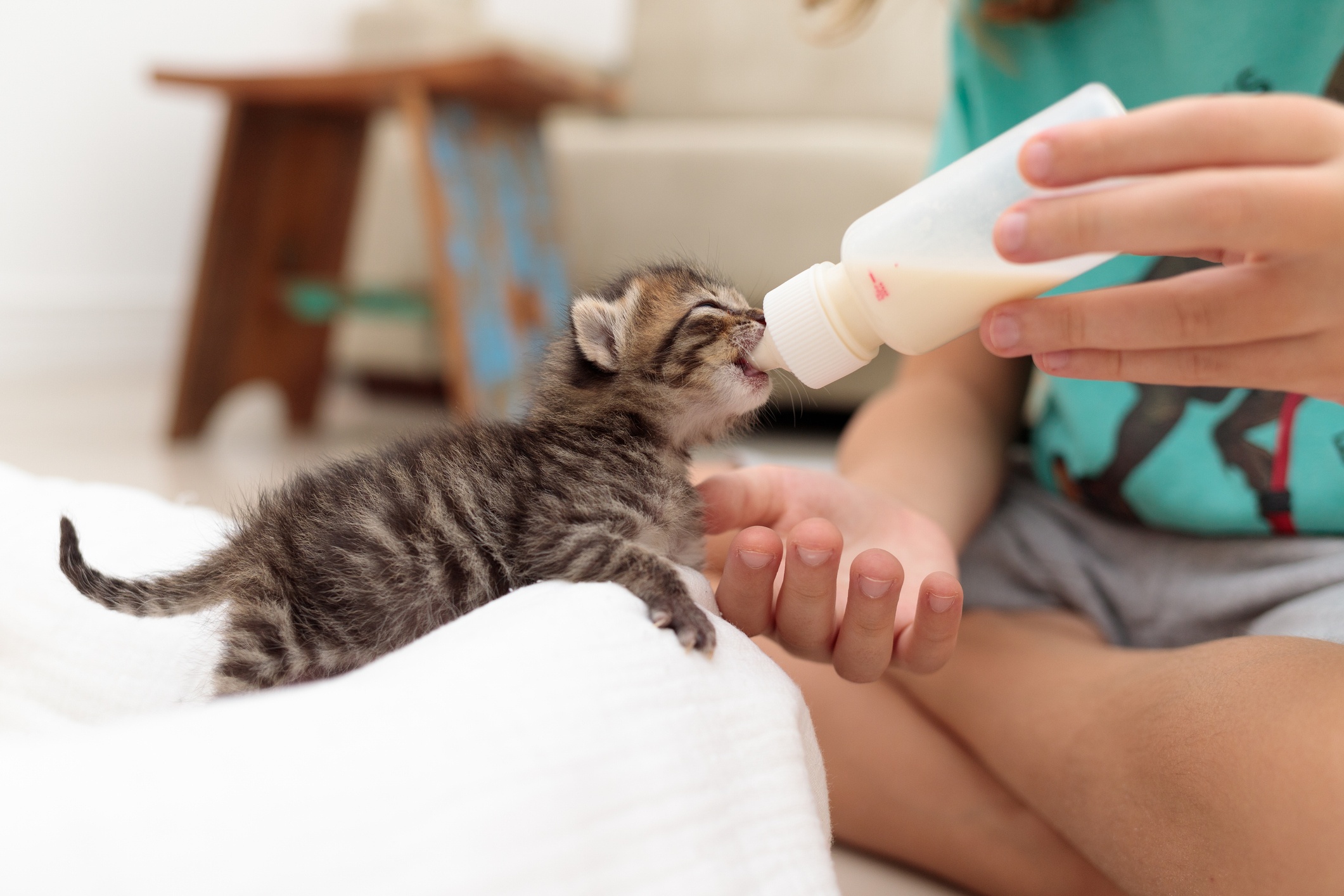Table of Contents
Fading kitten syndrome occurs when kittens fail to thrive following birth and prior to weaning. This is generally between four and six weeks of age. There are several conditions that may contribute to this syndrome, ranging from genetic defects to infections. Treatment must be initiated promptly for the best outcome. However, in many cases this condition is fatal relatively quickly. Fortunately, it is relatively uncommon in kittens.
Here we will discuss what fading kitten syndrome is, common symptoms and causes, diagnosis and treatment options, and the best prevention strategies.
What are the Symptoms of Fading Kitten Syndrome?
Kittens failing to thrive generally do not gain weight, appear weak, and don’t eat well. Additional symptoms that may be present include the following:
- Unkempt appearance
- Dehydration
- Decreased body temperature
- Vomiting
- Diarrhea
- Pale gums
- Lethargy
- Seizures (from low blood sugar)
What Causes Fading Kitten Syndrome?
Various conditions can lead to fading kitten syndrome, ranging from congenital (present at birth) issues to acquired diseases. Some of the most common conditions leading to fading kitten syndrome include:
- Poor suckle reflex
- Low birth weight
- Prematurity
- Genetic abnormalities
- Lack of nutrition
- Aspiration pneumonia
- Toxin exposure
- Anemia
- Bacterial or viral infections
- Intestinal parasites
How Do Veterinarians Diagnose Fading Kitten Syndrome?
A veterinarian starts with a thorough physical exam to identify obvious abnormalities in the kitten’s demeanor and anatomy, such as genetic defects. The veterinarian will speak with the pet parent about when symptoms started, when the kitten was born, and if there were any complications during birth. The veterinarian will also ask if there is any chance the kitten got into something, such as a toxin, recently. Because there are many factors that can cause fading kitten syndrome, diagnostic testing may be done to check the cat’s overall health. Testing may include the following:
- Bloodwork: A small sample of blood is removed from the kitten’s vein to check blood cells, platelets, and internal organ function. Specialized blood testing, such as infection or toxin screening, can also be done.
- Urinalysis: The kitten’s urine is screened for abnormalities, such as white blood cells or bacteria that indicate an infection.
- Fecal float: A small sample of stool is processed and viewed under the microscope to check for signs of intestinal parasites or infection.
- Imaging: A veterinarian may take a chest radiograph (x-ray) to identify signs of pneumonia that could be contributing to the kitten’s failure to thrive.
What is the Treatment for Fading Kitten Syndrome?
Treatment focuses on the underlying cause and is mainly supportive in nature. Treatment must be initiated promptly after the kitten becomes ill for the best outcome. Possible treatment options include:
- Intravenous fluid therapy
- Appetite stimulants
- Feeding tube
- Antibiotic or antiviral medications
- Antiparasitic medications
- Oxygen therapy
- Dextrose
- Supplemental heat to maintain body temperature
- Blood transfusions
Kittens are hospitalized and receive intensive care around the clock to treat their symptoms.
How Do Kittens with Fading Kitten Syndrome Recover?
Unfortunately, most cases of fading kitten syndrome are fatal. If the underlying cause is treated promptly by a veterinarian, some kittens will survive, though they generally require intensive care during recovery. The mortality rate is highest during the first week of illness.
Are There Ways to Prevent Fading Kitten Syndrome?
Pet parents should make sure the mother cat receives regular preventative care during her pregnancy to stay healthy and free of parasites or infections that could transmit to the kittens.
In addition, deworming kittens every couple of weeks helps treat and prevent intestinal parasites that can make kittens very ill.
Pet parents should closely monitor kittens following birth and weigh them daily to be sure they are receiving the proper nutrition and gaining weight. Bringing up any concerns to a veterinarian promptly can detect problems before they worsen and lead to severe symptoms.
Unfortunately, fading kitten syndrome due to genetic defects is not preventable.
References: Understanding and Defeating Fading Kitten Syndrome – National Kitten Coalition







